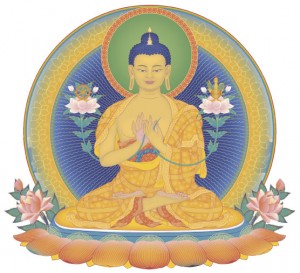JUDGEMENTALISM states that after death people are judged
by God and either sent to heaven or condemned to eternal torture in hell.
There are two types of judgementalism, judgment by works and judgment
by faith.
Judgment by works states that good people go to heaven and bad people go to hell. This is
a pretty clear-cut decision when it comes to Mother Teresa or Adolf Hitler, but what about
the majority of humanity who are somewhere in between? In fact we would expect most people
to be around the 50% good/50% evil mark. We can reduce the doctrine of judgmentalism to
absurdity by envisaging all sorts of razor-edge and hair-splitting situations where minor
transgressions tip the balance between going to heaven and an eternity in hell.
Judgment by faith (otherwise known as exclusivism) states that its
not what you do, but what you believe that matters. You can kill,
maim, rape, loot and pillage to your meme's content as long as you do it in good
faith.
All faith-based judgmentalists agree that everybody who belongs to the right religion
goes to heaven and everybody else (including unbaptised infants)
goes to hell. The only thing they tend to disagree on is which is the right religion.
Needless to say Buddhism will have nothing to do with this vindictive and arbitrary
soteriology. The Buddhist belief is that after death the mind goes through a kind of
review process where it comes face to face with its own negative
aspects, and is then drawn to the environment of its next birth by the imprints of its
attachments. The actual membership of a religion has no consequences apart from the
positive (or sometimes negative) actions of body, speech and mind produced by the
teachings. Religious affiliations are mere labels which have no inherent existence.
To see what logical and moral contortions even expert theologians have to put themselves
through to justify exclusivism, read 'Politically
incorrect salvation' ( By the way, do the comments on Buddhist logic in
this article seem rather strange - or is it just me?).
An attack on Buddhism, from a judgementalist pespective, was launched a few years ago
by Pope John Paul II in his book Crossing
the Threshold of Hope. The Catholic Church has since repeated
these allegations with the online publication of the section on Buddhism in The
Catholic Encyclopedia. This article is worth reading if only for
the final three or four sentences, which are a classic example of Cultural Imperialism -
old habits obviously die hard!
A calm, reasoned and non-divisive response to all this hot air and invective can be
found in Crossing the Threshold of
Liberation by Dr Yutang Lin..
- Sean Robsville
Christian
versus Buddhist worldviews
RATIONAL
BUDDHISM
If we regard Buddhism as a combination of a philosophy, psychology and religion, then how
much mileage can we get from the first two aspects before we have to start invoking
religious faith?
|
